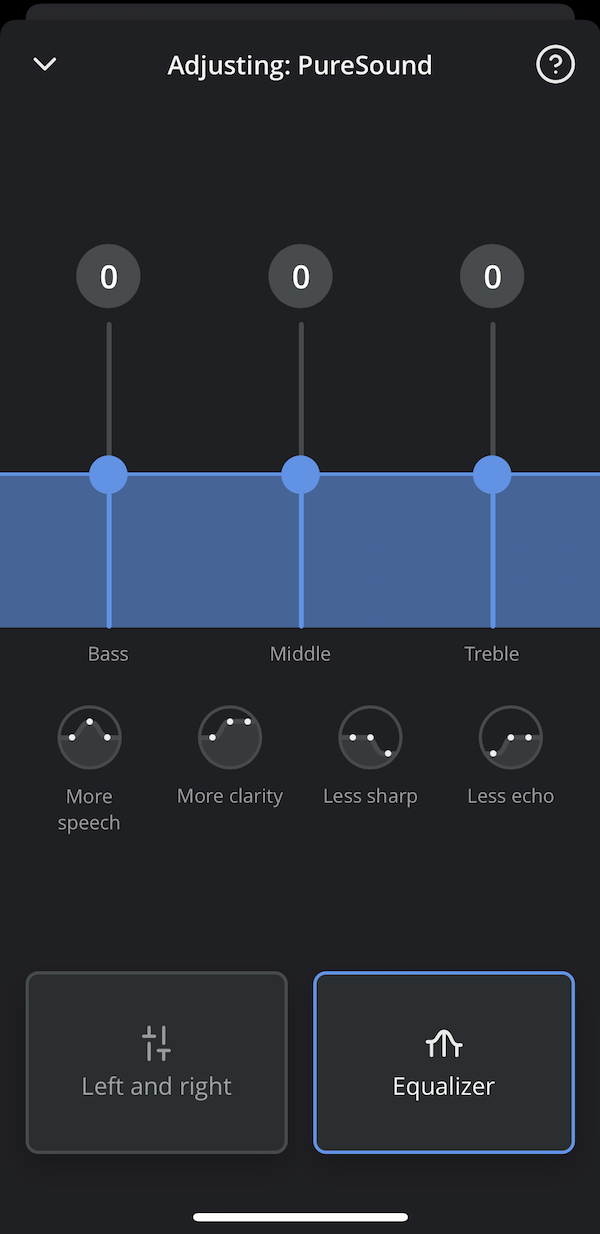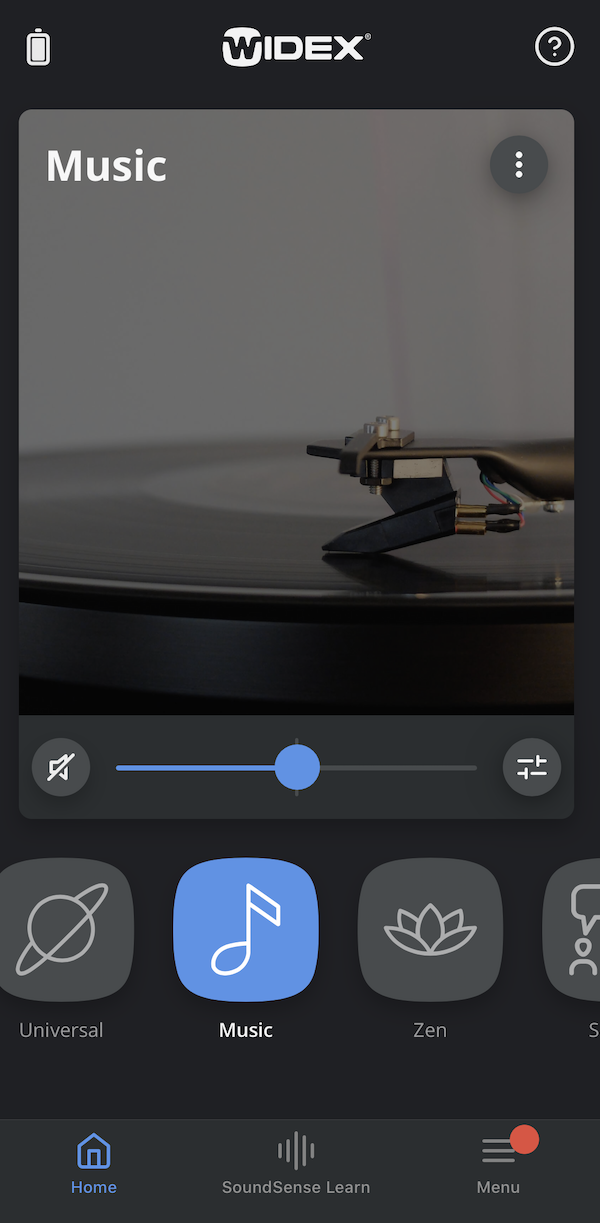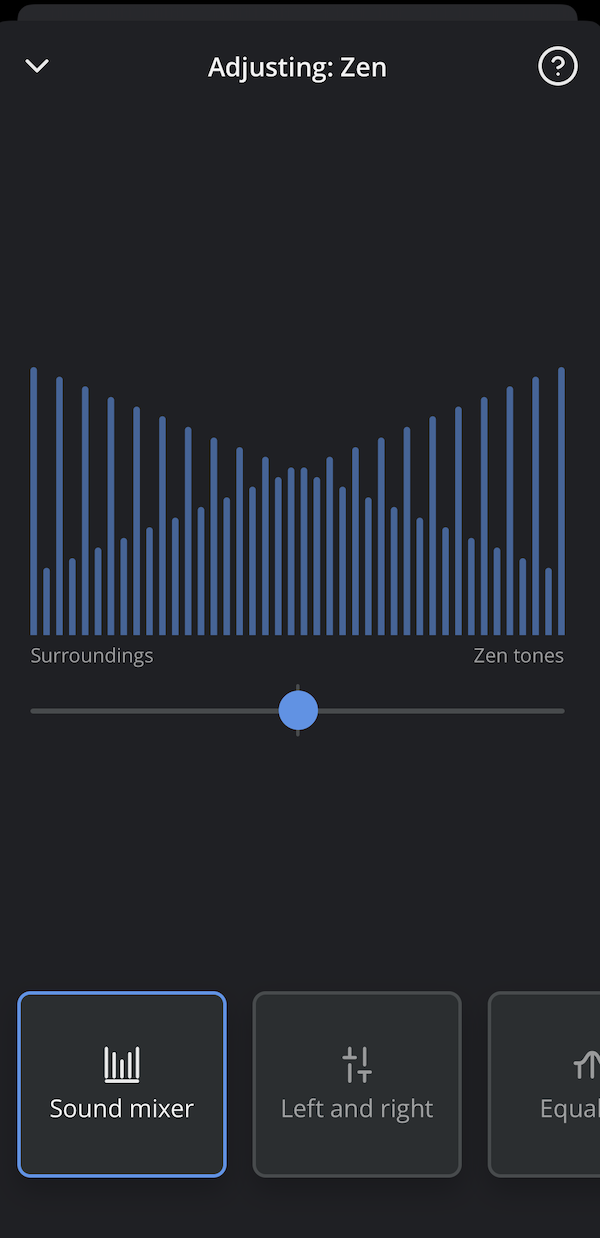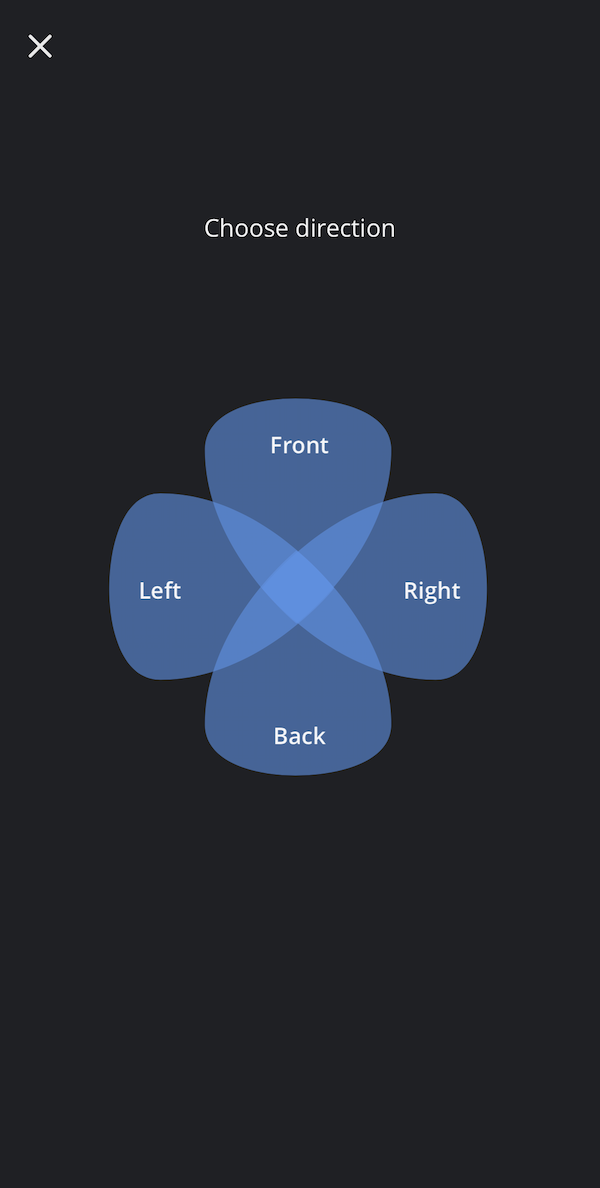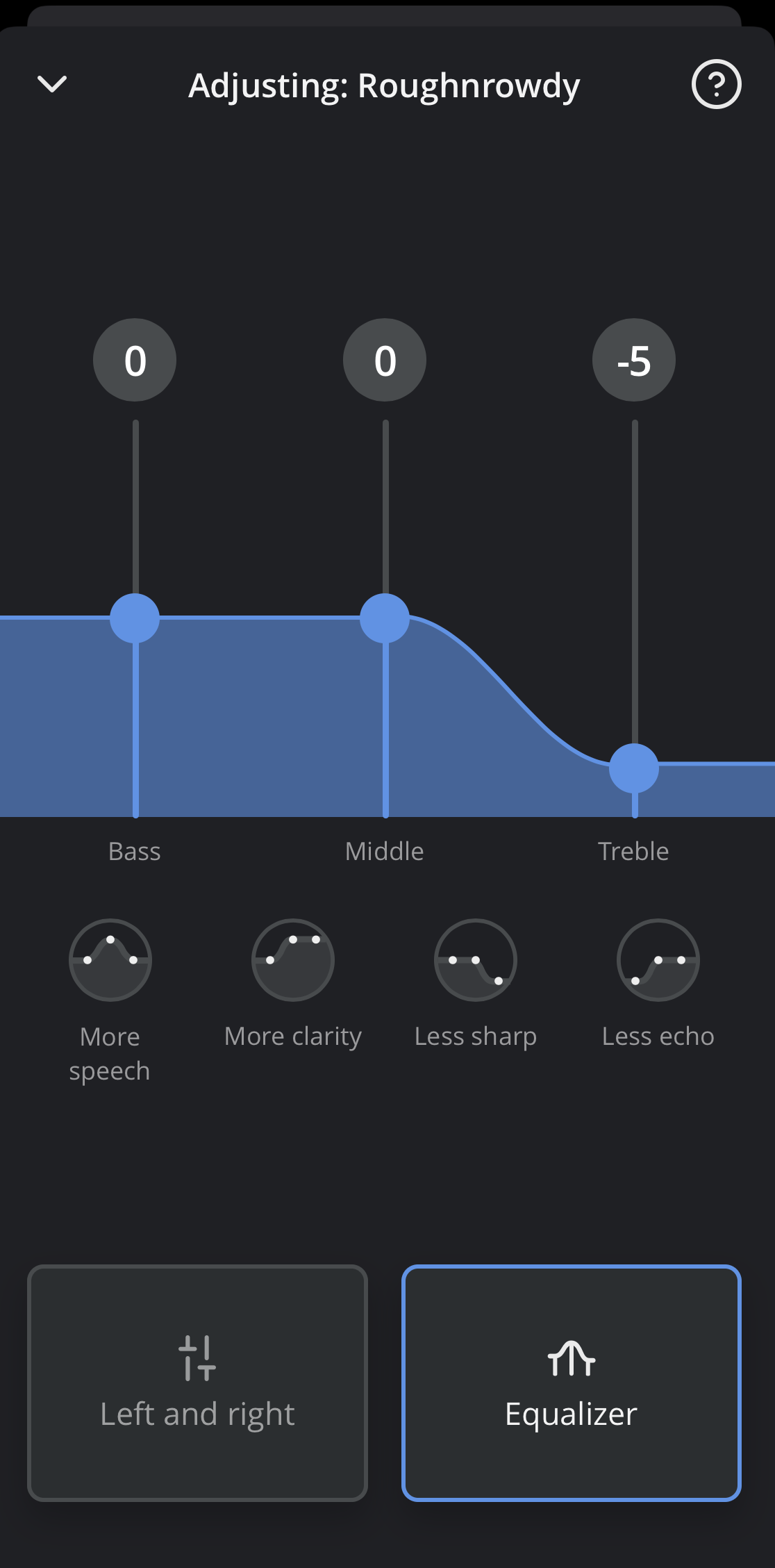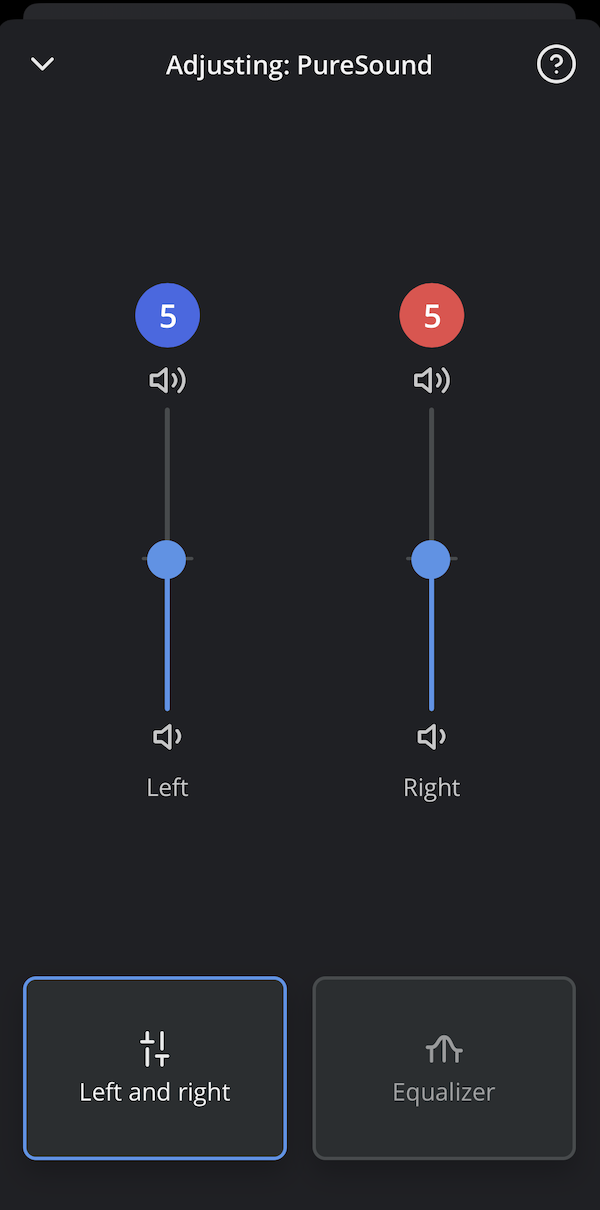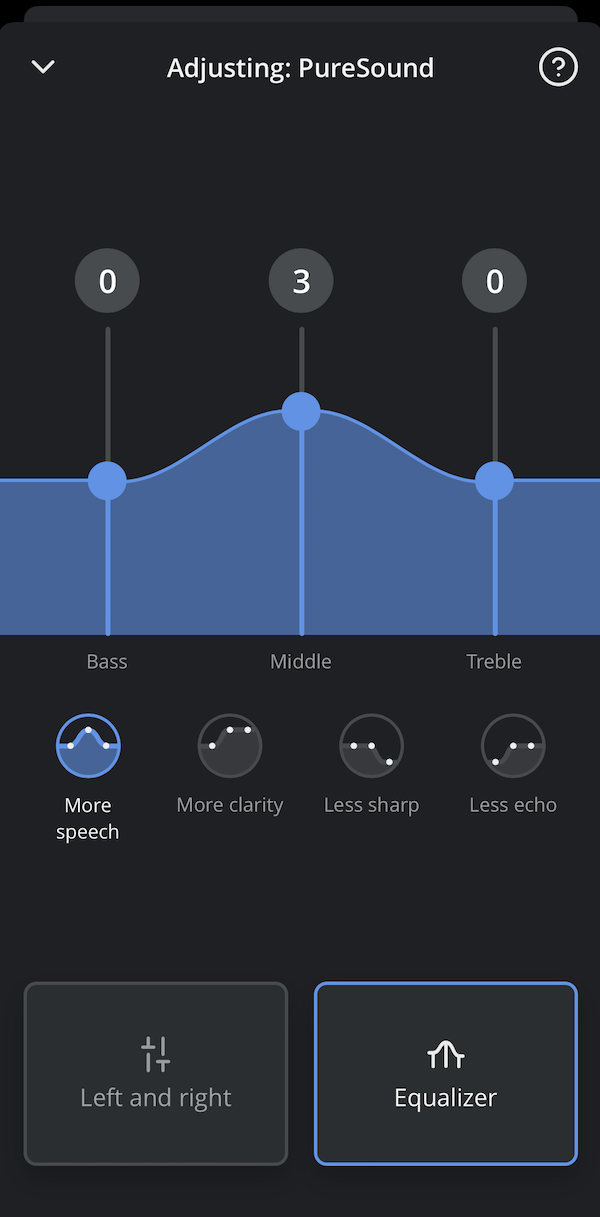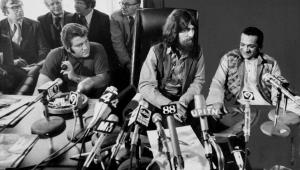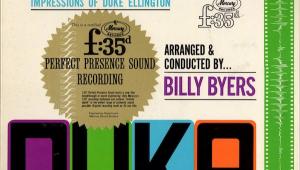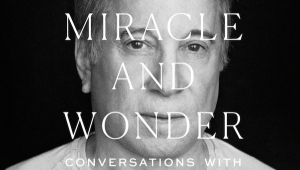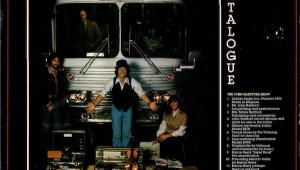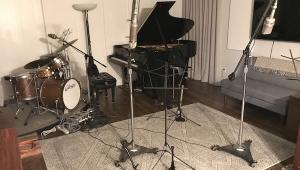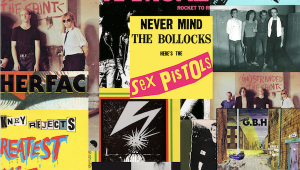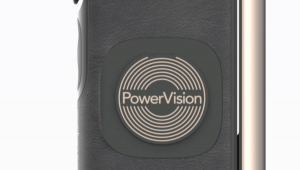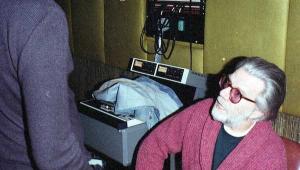There are a few companies working on hearing loss treatments. The most advanced is Frequency Therapeutics (frequencytx.com)with a treatment that repairs damage to the hair cells and helps restore hearing. Hearing loss may well be "curable" in the next couple of years. Fingers crossed.
Two Months With Widex’s Moment 440 mRIC R D Hearing Aids Part 2
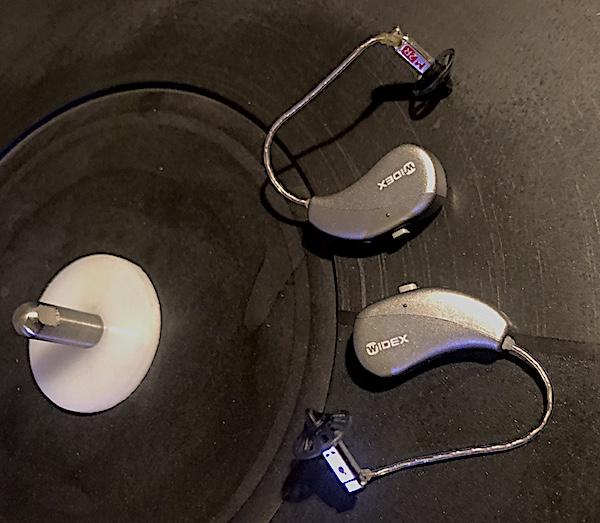
The app programs are: “PureSound”, “Universal”, “Music”, “Zen”, “Social”, “Directional Focus” and an AI program I’ll get to shortly. In each of these programs you can independently adjust L/R level and 3 equalizer levels or select from among a series of pre-sets. “PureSound” features the least amount of processing.
“Universal” is an all-around program for multiple environments. “Music” is supposed to be for what it says.
“Zen” is a scientifically designed tone injection program (like an ambient record) designed to relieve Tinnitus stress.
“Social” is for (for restaurants and group settings), while “Directional Focus” helps focus the amplficiation within the environment.
The AI program is the most interesting of all. If you’ve ever had an eye exam where the optician/ophthalmologist/optometrist offers you multiple pairs of choices and says “is this better or is this better” you understand the AI program. It’s similarly subjective. You’re given dozens of pairs of choices and asked if you prefer “A” or “B”. You can set up multiple such programs for different activities. I only did one such program, using it for music. At the end of the choices you see the EQ results.
As you can see, for the “blind” program I called “Roughnrowdy” (I was listening to Dylan’s album), the bass and mids were left “flat” I preferred the top end pushed way down. The less top end the more transparent and natural it sounded to me. I also quickly abandoned the “Music” program. It intruded way too far into my “transparent” listening. Same with “Universal”, which lessened transparency and made its presence known.
The most useful other program was “PureSound”, which to my ears had the least processing and the greatest transparency. Within it and the other programs you can set preferred level:
As well as adjust the equalizer:
Usually I left it “flat” and with the level set to 3 or 4 except when watching television where I hit the “more speech” midrange lift preset. The effect of this was so subtle you barely are conscious that anything’s changed or especially that anything’s been “amplified”, but vocal audibility greatly improves more than you hear a level boost. Over time you realize you are expending less effort understanding what’s being said, especially with the TV receiver’s level turned down, even if, without the hearing aids in, you can understand everything anyway.
Listening to Music
Of course, this is what you’re most interested in (if you’re interested in this at all). When I listen normally to the Bach Suites for Unaccompanied Cello it’s not as if there are large level changes, so once set for a realistic “I’m in the studio” level, I’m good. To test the Moment 440s I turned the preamp level down to well below normal level (for me) and boosted it in the hearing aid. Imaging and staging remained steady and three-dimensional—the studio space well defined. The cello’s texture and timbre were also surprisingly left intact. Only when I remove the two devices did I hear the differences and they were obvious, but still moderate. It wasn’t as if it went from listening to a radio to hearing it “live”. There was a slight textural degradation and that’s all.
On the other hand, one evening I streamed Spiritualized’s 1997 “space rock” classic Ladies and Gentleman We Are Floating in Space (which I highly recommend!) forgetting I had the Widex devices in my ears! It’s a very long (too long) record. About half- way through and at reasonably high SPLs I realized I had the hearing aids in and took them out. I liked it better with them in! Not because I could hear the music better, but because the effect of the hearing aids was a somewhat wider, more generous soundstage and a very slight bit of “sparkle” that provided a pleasing augmentation. Ultimately I preferred the “naked” listen, but either way was fine.
I’ll put it to you this way: if you mostly listen to electrified music and have a moderate hearing issue, especially Tinnitus (from listening to too much of it too loud for decades) you’ll probably be able, with these hearing aids, to get above the noise floor and tune the sound to your liking. That’s a big deal.
Two Months Later
If this is starting to sound more like an audio accessory review than a hearing aid review, you’re sort of getting the picture. Popping these in and out is effortless and takes a few seconds. Once in and correctly adjusted, you forget they are there. The only program I found seriously not useful was (ironically) the “Music” one. Very intrusive. The AI “Rough and Rowdy” one that seriously attenuated the top end per my “blind testing” was extremely effective especially for listening to classical and jazz at very low SPLs and when going from ppp or pianississimo to forte. Yes, the Bruckner 7th Direct-to-Disc record for which I contributed some notes, sounded more “pure” both texturally and timbrally with the Widex hearing aids out, but the results in, were very satisfying and allowed me to enjoy the entire first movement that begins ppp and ends with enormous blasts of trumpets, tympani and all sorts of majestic mayhem, without touching the volume control.
Conclusion
When I occasionally hear from readers who say their listening days “are over” and that either their hearing has headed “too far south” for anything to help or who have Tinnitus that’s too distracting to make listening to music pleasurable, it always saddens me and makes me think that it’s only a matter of time before I join them, which I probably will! It’s inevitable. But based on this experience, I’m happy to say that time is still many years off.
However, if you are finding listening more difficult by the day or week or month—never mind that you’re not an audio reviewer whose words have consequences—my experiences with the Widex Moment 440 mRIC R D tells me to tell you to not give up without first trying out a pair of these hearing aids, designed with music in mind.
While the ZVOX hearing aids were pretty good, especially for what they cost, there’s really no comparison between those rudimentary devices and these super sophisticated ones and of course the price differential reflects that. The Widex Moment 440 mRIC R Ds with audiologist fitting and purchased from an authorized dealer cost from between $5000-$7000 dollars depending upon where you live and other factors, or the cost of some mid-priced analog interconnects. I doubt any of the “budget” hearing aids can match the performance and/or versatility of these high-tech Widex Moment devices, so while some balk at the high prices of top of the line hearing aids, just as they do at costly audio gear, I suspect what’s true is what my mother always used to say, “You pay, you get.”
One more observation that may more be fancy than fact, but I’ll leave it to the company or the audiologist to comment. I did use the “Zen” program to relax my ears during times I wasn’t listening to anything. It is sort of like listening to Roger and Brian Eno’s new double LP set Mixing Colours—very soothing and relaxing tinkling tones. As was relaxing watching and listening to television with the hearing aids in and being able to keep the volume at much lower than normal levels with complete intelligibility.
Now that the review is over, and with the hearing aids out I think I’m noticing an improvement in my moderate amount of Tinnitus. It now seems lower in level and less obtrusive. And I think I’m actually hearing everything better because my “ears” seem to be more relaxed and feeling less pressure and strain. Maybe they’ve been “retrained”? I’m sure of one thing: I’m staying up later at night and listening to even more music than I was before I started this two month adventure and there’s nothing wrong with that.
- Log in or register to post comments



Hearing aids are of course a godsend for people who have hearing loss, to get about their everyday activities and interaction.
But for listening to music? Could that not be done better by turning up the stereo a bit and equalizing the sound for clarity, rather than picking sound up with a microphone and then putting it through a whole process? Or just listening with headphones plugged into source, again a bit louder and equalized for need?
These of course would still be useful for attending concerts and the opera.

Yes and no. First, the amount of high frequency boost would probably fry the tweeters and/or the preamp. We are talking 20-40db or more. Second, the way you loose your hearing is complicated...it's not just amplitude. It's also dynamic range. The HA's will give less boost at high listening levels than lower ones. All in all, for simple slight losses you could boost the frequencies with your stereo, but for more than that, the HA's are better.

Michael, good review of an obviously good product. And timely for many of us experiencing age-related hearing loss. I've been researching hearing aids for music lovers and the Widex brand seems to be one of the best. Your endorsement, in particular, is further validation.
Tiptop, I've been using a Schiit Audio Loki Mini tone control to help compensate for my hearing loss while listening to music at home. The amount of frequency boost I ended up with (after hours/days/weeks of trial and error listening to an eclectic mix of music) reflects my hearing loss in the corresponding frequencies. I think if Schiit came up with a five or six band equalizer, to refine the adjustments in the mid-range frequencies, they'd probably sell a bunch of them to us aging audiophiles.
Tom

Michael:
Thank you so much for this review. I'm sure many of us ageing audiophiles appreciate it! My question is this: I can still (at this point) enjoy listening to my stereo without adjustments but struggle with conversation somewhat. In your opinion, is it practical to wear these for conversation and then remove for stereo listening (in my particular case) or is there some acclimatization period required for your ears to adjust to the change in sound? I would love to be able to wear them or not as the circumstances dictate but have never experienced hearing devices so no idea if this is really practical.
Again, thanks for doing this!
Lee in Vancouver

...work very well for me. Especially now, listening to much more music and enjoying my stereo more since being fitted with these very small, very discrete hearing aids 3 years ago.
I was missing a lot of the high frequency range of my hearing, and had a lot of difficulty in group gatherings, restaurants, etc. My family was getting quite frustrated with having to repeat everything they said to me.
I wear them all day, except during sleep, just put them on and forget about them. I only have to adjust the volume occasionally in very noisy situations.
Most retailers offer extensive free trials, so it's worthwhile (and very instructive) shopping around. As Michael implied, don't go cheap.

Hi Chris:
Thanks for your encouraging comments and the recommendation. I still would like to know if its practical to wear them only sometimes and not always. My stereo sounds fine to me without them so I'd like to know if they can be worn intermittently. For example, if I wear them during the day for conversation and then remove them for listening to my stereo (which already sounds fine to me) would the stereo suddenly sound muffled as my ears adjust to removing them? Perhaps a silly question but I have never experienced hearing aids before so don't what to expect. Its an exciting prospect though so thank for your nomination of Opticon as a contender.
Cheers
Lee

First of all, get your hearing checked to see (hear) what type of hearing loss you might have and where your deficiencies are. If you've had a hearing loss for awhile (years?), you might find using hearing aids helpful wearing them full time. I find it less stressful and less strenuous and tiresome when I do. I was told hearing and brain function can actually improve when you do. I think I have to concur.
Best get checked out first. If you qualify for hearing aids, get the best you can afford and shop at an outlet that gives you good service. (Despite the good prices, avoid places like Costco.)

Thanks Chris. Getting checked out is a good place to start so I'll take the first step.
Cheers
Lee

Michael, sometimes I forget I'm wearing them and step into the shower and suddenly notice how "loud" the water sounds on my head!

I have Widex and I really think they are great.

I'm 73 and beginning to experience Tinnitus and the normal hearing loss someone my age can expect to have.

that problem in the Restaurants Mike.
Sometimes I just sit there and not get involved in the conversation.

When I retired at the age of 75 I envisioned many happy hours of listening to music on my wonderful audio equipment. However, my hearing began to decline at about the same time. Listening to my lps and cps is difficult because everything sounds terrible. Even live music does not sound very good. With my Phonak hearing aids it is even worse. So, I have not used my stereo now for about two months. I thought about and tried ear phones using headphone amps from the cheap to the "if you have to ask the price you can't afford them". None of them offered what I wanted, the ability to control the volume and tone of each channel. I keep hoping some company will offer a dual mono headphone amp that would have tone and volume controls for each channel. My first amp was the integrated Scott 299-c, and it had a balance control as well as treble and bass controls for each channel. I spoke with some folks at PS Audio about making a dual mono headphone amp, and they seemed interested. Then, the pandemic and the world turned upside down. I recall that in one of your audio show videos from Munich that you talked with a gentleman from Ortofon. He mentioned that Ortolan was looking into something like a hearing aid, and you jokingly told him he could not call it a hearing aid but hearing assistance or something. I have been waiting for more about this, but I have heard nothing. Probably the pandemic has affected this development as well. Needless to say, I read your extensive review of the Widex, and I plan on contacting them about the availability in the Akron/Cleveland area.

Michael,
It was only the other day that I wondered if anyone had reviewed a hearing aid from the hi-fi perspective and, lo, it happened.
I'm 73 and after a long career in the mining exploration business working underground and in the field using helicopters and drilling machines, my hearing is, as they say, seriously suboptimal. Flat from 20 to 1kHz but then a quick descent to the Stygian depths of high-frequency deafness. This explained the lopsided soundfield I heard from the music system which was corrected when I used the hearing aids, Starkey Bluetooth rechargeables.
The devices have a smartphone app with basic EQ adjustment, and it basically works. As I have Larsen 8 speakers, the hearing aids don't need to be in any acoustic sweet spot to sound good.
The Starkeys use thin plastic tubes to direct the DSP signal to the inner ear. Sound quality? Meh, depends on the source - and Iphones are definitely not high end.

I am happy that this company is doing this.
My friend said that their price is right in line with 'standard' hearing aids, as well!

I've used the Widex hearing aid for more than a year, after trying several others. Widex aids are by far the best for music. One reason is that most hearing aid reverse polarity to make speech more understandable. That helps speech but is disasterous for music. Widex hearing aids-at least the music program (or its modifications using the AI function)--do not invert (I had my audiologist check with Widex). I wear them constantly: when playing in a community orchestra and when listening to stereo or playing movies. My findings are the same as Michael's: better ability to hear both very soft and loud passages, and much better tracking of movie dialogue. Anyone over 60 (I'm way over) should have their hearing tested and should buy a hearing aid if needed. Just be sure to check that the device has at least one setting that does not reverse polarity.

until somebody mentions it. Thanks Michael!


It's not only loud sound (music or industrial) that will damage your hearing. In my case, windsurfing in dirty old Buzzards Bay and ear infections on at least two occasions resulted in Menieres disease (tinnitus and loss of bass frequencies). Many years later, my left ear succumbed to sudden hearing loss after a multi-hop flight. The hearing came and went for two years before finally going, just leaving tinnitus. The right ear succumbed to naproxen-sodium 30 months ago, taken for a painful shoulder injury, luckily, my right ear has stabilized. All NSAIDs affect the hearing but naproxen-sodium is the worst. After a course of strong steriods, my doctor said nothing would help except a hearing aid. I had the best Oticon units but decided the left ear was beyond hope, so I just use the right occasionally. Why occasionally? Because headphones (music & TV) and subtitles (TV) are far preferable. The hearing aid works well in closed spaces like my work office but not in the open. My ear reacts to the hearing aid by itching and producing wax that eventually clogs it and requires cleaning. I need to go back to the audiologist for a longer dome that does not allow wax to get to the filter. All in all, a PITA, so take care of your hearing!

Still a young 54yr old, 7 years ago I had to start using a noisy CPAP machine. Not so much the machine itself is noisy but air leaks on the face mask are loud and annoying enough to wake you up. So I very quickly learned to use soft compressible ear plugs to shield my hearing from those dream wrecking air leaks. A positive effect is my mild tinnitus has all but disappeared and my hearing has nearly reverted to what it was in my late 30s. This was borne out by my yearly audiology tests required where I work. When the test finishes, you get a printout of that days results and all of your past results on the same page.

I've been using CPAP for 20 yrs. If your mask is leaking, you need to be refitted. There are many masks these days...nose only, nasal pillows, nose and mouth...but you need a refit and you need it bad.

I will refrain. There are too many layers of people making $ on hearing aids. Ok I'm glad when everyone has a job but 5-7k? C'mon man. Hearing aid conglomerate, that's just great. This should be in the same category as healthcare in that it should be covered in some way by insurance but it rarely is. Before I got caught in a Ponzi scheme none of the above remarks would be necessary. I'm now budget conscious (or un). I had stapedectomy operations in both ears in my early 40's. one went quite well and the second not as well (same doctor but too old to do the second operation and I knew it but didn't act on it). Tinnitus would be a natural progression but it took another 20+ years to develop and is not terrible. I'm sure the cornerhorns I used to have were played way too loud an hour or two a week at most. When my mother passed away in 2016 I found the right ear hearing aid ($150 in 2010 now $300 with a lot of upgraded technology) from MD Hearing in the drawer that she never used. I have tried it off and on, and I just finished 2 months of knocking on doors for the Census Bureau where I was forced to use it every day to do the interviews. It helped immensely and was very comfortable to the point I could completely forget about it. I wore glasses and a baseball hat and still managed to get it to work, although 2 might be more problematic. Now I love Ry Cooder's first 3 records, he took great care to make great sounding records from the beginning. So I put in the hearing aid and dang they just sound even better. Then Surf's Up, wonderful! Then Bob Weir's solo record Heaven Help the Fool (guilty pleasure), great vocals and soundstage and songs made even better! So I have 10 year old hearing aid with the same exact form factor as the Widex. I know there is a lot of disintermediation going on in the hearing aid industry so my eyes and ears will keep paying attention!

I have been using ReSound hearing aids for about 3 years. They make an AMAZING difference when listening to music with speakers or headphones. I was really surprised as I thought they would make the music sound thin and tinny.
However, realizing this has been a controversial issue, I would hope that ALL reviewers have a high-quality hearing exam to see where they may, or may not, have some frequency loss. If they have some loss at a particular frequency and a speaker or headphone emphasizes this frequency then they may conclude it sounds great perhaps not realizing they are not starting out with an essentially flat baseline of hearing. This can distort from a true conclusion. This is not to put reviewers in the hot seat but to just suggest they get tested. This information can be kept private but I think it is ever so important for the objective and accurate review of a product. Just my 2 cents worth.

Doing well with these after a couple of months; thank you again; miss you on Twitter.

Just stumbled onto this thread. Thanks for your comments and review.
I switched from Resound to Widex Beyond 440's about two years ago. Ever since Ive been on a tear expanding my record collection and upgrading my system. For example, I actually heard a difference when I upgraded my old Stereo 70 with a pair of VTL monoblocks! Different versions of records sound different, and I've come to realize I prefer my Ortofon Quintet Black over the Hana SL. So now I've learned about the Widex Moment, and I contacted my hearing guy today to find out how much, and how soon.
Heading into retirement though, I'm not sure I can afford it! Not the hearing aids, what it will cost me in stereo equipment and new records!

Hi Michael, nice that you got Widex - I too have them, but on Medicaid I am offered only three channels. I have "Universal," "Music," and "Party." "Music" helps it expect noises that would have been identified as feedback, so I hear music much more clearly - more top end too. "Party" setting cuts out the noise from above, below and to the sides, accepting mostly your own voice and whoever is right in front of you. Helpful indeed. I had never considered that I was putting analog through digital, but I guess I am. [I saw Hendrix from ten feet away in a small club, so I know I deserve hearing loss, but the aids are great - and I'm sure the top of the line is even better. I bring -15db earplugs to concerts now. Without them, I wouldn't go.] I still haven't tried the new ones out onstage, and hope I don't have to wear the earplugs instead - but if I have to, I will.
Thanks for all you do - we have agreed on many many points since I discovered your site. You have been very helpful. [Some other day I'll discuss why I don't like the Craft remasters of Big Star...]
Have a wonderful weekend!

I've been off line for a few years, but now, I LOVE MY WIDEX MOMENTS. I didn't know you had written/used them, great news. Everybody, pay attention. It costs NOTHING to try them.
My audiologist outfitted me with a DEMO pair for about 2+ months. I aksed him about listening to music at home. Voila, the MUSIC setting. It recreates a pretty flat response from around 40 ? hz up to that 9 khz region. I am on my 5 or 6 ttbl. VPI Prime with new VPI Fat Boy arm, Lyra Delos cartridge, ribbon type speakers. Love love love.
I'll repeat: get a hearing test and an demo of Widex or other brand of current state of the art. Yes, $6 thou is not cheap. So none of our gear is. And these will last 5 yrs or more. Best investment, after a VPI record vacuumer, you can make for listening at home.

Great review (and question)!
One of my 7-yr-old Rextons just failed so I'm looking for replacements which will hopefully address my only complaint, which is that cymbals still don't sound like they used to, i.e. shushy rather than shimmery.
I was told by a Costco audiologist who was a retired digital engineer that all of the receivers (speakers to us) are the same and that all of the sound differences between HA's is due to the processing.
Is there any reason to expect that the .5 ms delay will adress my issue?
> The AI “Rough and Rowdy” one that seriously attenuated the top end per my “blind testing” was extremely effective especially for listening to classical and jazz at very low SPLs
I'm puzzled as to why that wouldn't just make it sound dull, especially at the low SPL.

Thank you for sharing your experience with the Widex Moment 440 mRIC R D hearing aids! It’s really insightful to hear about real-world use over an extended period. The emphasis on sound quality and the natural listening experience is especially intriguing—it's amazing how far hearing aid technology has come. I’d love to know if you faced any challenges with connectivity to mobile devices or battery life during your trial. Also, did you notice a significant difference with the PureSound technology in environments with a lot of background noise? Looking forward to your future updates!


To fully test out the Widex Moment 440 mRIC R D hearing aids, two months is a good length of time. It's amazing if they've lived up to their reputation for providing natural sound and cutting-edge noise control! Your opinions on comfort, battery life, and how they've enhanced your overall hearing experience in various settings would be very appreciated.for more- https://meditreehealthcare.in/
